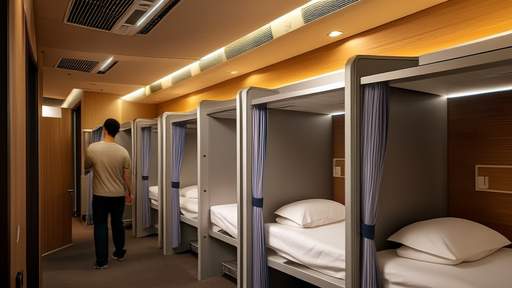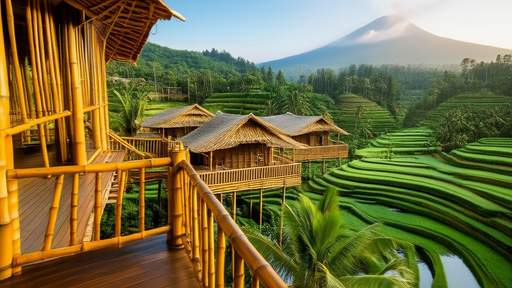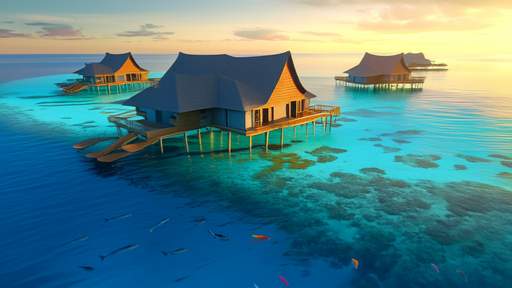The Maldives, a tropical paradise renowned for its crystal-clear waters and vibrant marine life, has long been a dream destination for travelers seeking luxury and natural beauty. Among its most iconic attractions are the overwater bungalows, or "water villas," that dot the lagoons of private resorts. These structures, perched above the turquoise sea, offer guests unparalleled views and direct access to the ocean. However, the construction and presence of these villas have raised concerns about their impact on the fragile coral reefs beneath them. In response, several resorts and environmental organizations have launched innovative coral transplantation initiatives aimed at mitigating damage and promoting reef regeneration.
The delicate balance between tourism and conservation has always been a challenge in the Maldives. Coral reefs, the backbone of the archipelago's marine ecosystem, are under constant threat from climate change, ocean acidification, and human activity. The development of overwater bungalows, while economically beneficial, has inadvertently contributed to reef degradation. The pilings that support these structures can disrupt coral growth, and the shade they create may limit sunlight essential for photosynthesis. Recognizing this, forward-thinking resorts have begun integrating coral transplantation into their sustainability strategies, turning potential ecological liabilities into opportunities for reef restoration.
Coral transplantation in the Maldives is not a new concept, but its application in the context of overwater bungalows represents a novel approach. The process typically involves collecting healthy coral fragments from donor sites, nurturing them in underwater nurseries, and eventually transplanting them onto artificial or natural substrates near the water villas. Some resorts have taken this a step further by involving guests in the transplantation process, offering educational programs that highlight the importance of reef conservation. These initiatives not only help restore damaged areas but also foster a deeper connection between visitors and the marine environment.
The success of these programs hinges on careful planning and scientific oversight. Not all coral species are equally suited for transplantation, and factors such as water temperature, currents, and depth must be considered to ensure the transplanted corals thrive. Resorts collaborating with marine biologists have developed tailored approaches, selecting resilient species and optimizing placement to maximize survival rates. In some cases, the transplanted corals have shown remarkable growth, forming new reef structures that attract diverse marine life and enhance the guest experience. These efforts demonstrate that sustainable tourism and ecological preservation can go hand in hand.
One of the most ambitious coral transplantation projects is underway at a luxury resort in the Baa Atoll, a UNESCO Biosphere Reserve. Here, the resort has partnered with a local marine research center to create an extensive coral nursery. The nursery serves as a hub for reef restoration, producing thousands of coral fragments each year. These fragments are later transplanted around the resort's water villas, where they gradually develop into healthy coral colonies. The project has garnered international attention, showcasing how high-end tourism can actively contribute to environmental conservation. Guests are invited to participate in coral planting activities, turning their holiday into a meaningful conservation effort.
The long-term benefits of coral transplantation extend beyond ecological recovery. Healthy reefs act as natural barriers, protecting the islands from erosion and storm surges. They also support fisheries, which are vital for local communities. By investing in reef restoration, resorts are not only safeguarding their own assets but also contributing to the resilience of the entire Maldivian ecosystem. Moreover, these initiatives enhance the resorts' appeal to environmentally conscious travelers, who increasingly prefer destinations that prioritize sustainability. In this way, coral transplantation has become a win-win solution for both the environment and the tourism industry.
Despite these successes, challenges remain. Coral transplantation is labor-intensive and requires ongoing monitoring to ensure the transplanted corals survive and thrive. Climate change poses an additional threat, as rising sea temperatures can lead to coral bleaching, undoing years of restoration work. To address this, some resorts are experimenting with heat-resistant coral strains and advanced monitoring technologies. Drones and underwater sensors are used to track coral health, providing real-time data that helps researchers adapt their strategies. These innovations highlight the dynamic nature of coral conservation and the need for continuous investment in research and development.
The story of coral transplantation in the Maldives is one of hope and collaboration. It shows how the tourism industry, often criticized for its environmental impact, can become a force for good. By embracing sustainable practices and engaging guests in conservation efforts, Maldivian resorts are setting a powerful example for other destinations facing similar challenges. The overwater bungalows, once symbols of luxury alone, are now also symbols of a commitment to preserving the natural wonders that make the Maldives so special. As these initiatives grow, they offer a blueprint for balancing development with environmental stewardship, ensuring that future generations can continue to enjoy this island paradise.

By /Jun 5, 2025

By /Jun 5, 2025

By /Jun 5, 2025

By /Jun 5, 2025

By /Jun 5, 2025

By /Jun 5, 2025

By /Jun 5, 2025

By /Jun 5, 2025

By /Jun 5, 2025

By /Jun 5, 2025

By /Jun 5, 2025

By /Jun 5, 2025

By /Jun 5, 2025

By /Jun 5, 2025

By /Jun 5, 2025

By /Jun 5, 2025

By /Jun 5, 2025

By /Jun 5, 2025

By /Jun 5, 2025

By /Jun 5, 2025